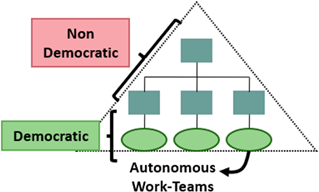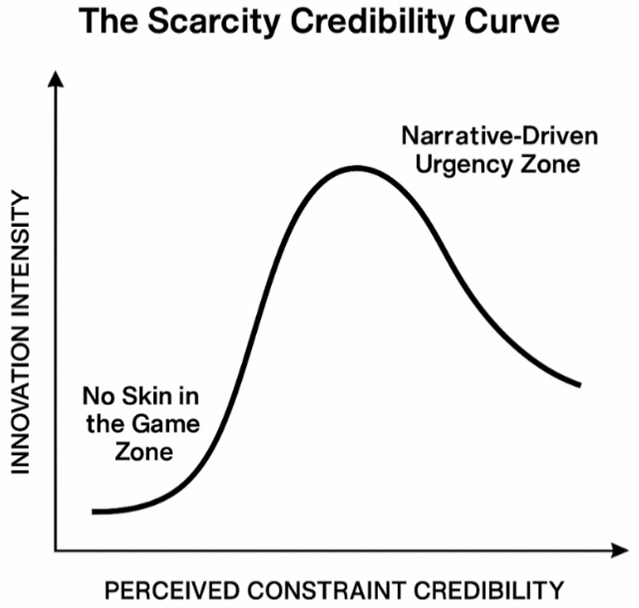
Asia Pacific Academy of Science Pte. Ltd. (APACSCI) specializes in international journal publishing. APACSCI adopts the open access publishing model and provides an important communication bridge for academic groups whose interest fields include engineering, technology, medicine, computer, mathematics, agriculture and forestry, and environment.


Corporate carbon disclosure: Methods, motivations, and impacts
Vol 2, Issue 1, 2025
Download PDF
Abstract
In the context of the global shift toward a low-carbon economy, carbon disclosure has emerged as a crucial tool for facilitating the low-carbon transition of firms and addressing climate change. As a result, it has become an increasingly prominent focus in academic research and policy making. This paper reviews the existing literature on carbon disclosure, examining the methods, standards, motivations, and impacts associated with current research in this area. Based on this analysis, the paper identifies key gaps in the existing literature and suggests directions for future research, aiming to contribute to the advancement of theoretical understanding and provide a valuable reference for future studies.
Keywords
References
1. Borghei Z. Carbon disclosure: a systematic literature review. Accounting & Finance. 2021; 61(4): 5255-5280. doi: 10.1111/acfi.12757
2. Crossan MM, Apaydin M. A Multi‐Dimensional Framework of Organizational Innovation: A Systematic Review of the Literature. Journal of Management Studies. 2010; 47(6): 1154-1191. doi: 10.1111/j.1467-6486.2009.00880.x
3. Moher D. Preferred Reporting Items for Systematic Reviews and Meta-Analyses: The PRISMA Statement. Annals of Internal Medicine. 2009; 151(4): 264. doi: 10.7326/0003-4819-151-4-200908180-00135
4. Kitchenham B, Pearl Brereton O, Budgen D, et al. Systematic literature reviews in software engineering – A systematic literature review. Information and Software Technology. 2009; 51(1): 7-15. doi: 10.1016/j.infsof.2008.09.009
5. Gioia DA, Corley KG, Hamilton AL. Seeking Qualitative Rigor in Inductive Research. Organizational Research Methods. 2012; 16(1): 15-31. doi: 10.1177/1094428112452151
6. Koutrouli E, Tsalgatidou A. Reputation Systems Evaluation Survey. ACM Computing Surveys. 2015; 48(3): 1-28. doi: 10.1145/2835373
7. Strijbos JW, Martens RL, Prins FJ, et al. Content analysis: What are they talking about?. Computers & Education. 2006; 46(1): 29-48. doi: 10.1016/j.compedu.2005.04.002
8. Svensson G, Ferro C, Hogevold N, et al. Developing a theory of focal company business sustainability efforts in connection with supply chain stakeholders. Supply Chain Management: An International Journal. 2018; 23(1): 16-32. doi: 10.1108/scm-12-2015-0461
9. Dan E, Shen J. Establishment of Corporate Energy Management Systems and Voluntary Carbon Information Disclosure in Chinese Listed Companies: The Moderating Role of Corporate Leaders’ Low-Carbon Awareness. Sustainability. 2022; 14(5): 2714. doi: 10.3390/su14052714
10. Hummel K, Schlick C. The relationship between sustainability performance and sustainability disclosure – Reconciling voluntary disclosure theory and legitimacy theory. Journal of Accounting and Public Policy. 2016; 35(5): 455-476. doi: 10.1016/j.jaccpubpol.2016.06.001
11. Kirmani A, Rao AR. No Pain, No Gain: A Critical Review of the Literature on Signaling Unobservable Product Quality. Journal of Marketing. 2000; 64(2): 66-79. doi: 10.1509/jmkg.64.2.66.18000
12. Guenther E, Guenther T, Schiemann F, et al. Stakeholder Relevance for Reporting. Business & Society. 2015; 55(3): 361-397. doi: 10.1177/0007650315575119
13. Li D, Huang M, Ren S, et al. Environmental Legitimacy, Green Innovation, and Corporate Carbon Disclosure: Evidence from CDP China 100. Journal of Business Ethics. 2016; 150(4): 1089-1104. doi: 10.1007/s10551-016-3187-6
14. Hahn R, Lülfs R. Legitimizing Negative Aspects in GRI-Oriented Sustainability Reporting: A Qualitative Analysis of Corporate Disclosure Strategies. Journal of Business Ethics. 2013; 123(3): 401-420. doi: 10.1007/s10551-013-1801-4
15. Downar B, Ernstberger J, Reichelstein S, et al. The impact of carbon disclosure mandates on emissions and financial operating performance. Review of Accounting Studies. 2021; 26(3): 1137-1175. doi: 10.1007/s11142-021-09611-x
16. Depoers F, Jeanjean T, Jérôme T. Voluntary Disclosure of Greenhouse Gas Emissions: Contrasting the Carbon Disclosure Project and Corporate Reports. Journal of Business Ethics. 2014; 134(3): 445-461. doi: 10.1007/s10551-014-2432-0
17. Döring S, Drobetz W, El Ghoul S, et al. Foreign Institutional Investors, Legal Origin, and Corporate Greenhouse Gas Emissions Disclosure. Journal of Business Ethics. 2023; 182(4): 903-932. doi: 10.1007/s10551-022-05289-6
18. Ramadorai T, Zeni F. Climate Regulation and Emissions Abatement: Theory and Evidence from Firms’ Disclosures. Management Science. 2024; 70(12): 8366-8385. doi: 10.1287/mnsc.2021.00482
19. Grahn A. Greenhouse Gas Disclosure: Evidence from Private Firms. Journal of Business Ethics. 2024. doi: 10.1007/s10551-024-05697-w
20. Asif M, Searcy C, Castka P. ESG and Industry 5.0: The role of technologies in enhancing ESG disclosure. Technological Forecasting and Social Change. 2023; 195: 122806. doi: 10.1016/j.techfore.2023.122806
21. Deegan C, Blomquist C. Stakeholder influence on corporate reporting: An exploration of the interaction between WWF-Australia and the Australian minerals industry. Accounting, Organizations and Society. 2006; 31(4-5): 343-372. doi: 10.1016/j.aos.2005.04.001
22. Liesen A, Hoepner AG, Patten DM, et al. Does stakeholder pressure influence corporate GHG emissions reporting? Empirical evidence from Europe. Accounting, Auditing & Accountability Journal. 2015; 28(7): 1047-1074. doi: 10.1108/aaaj-12-2013-1547
23. Kolk A, Levy D, Pinkse J. Corporate Responses in an Emerging Climate Regime: The Institutionalization and Commensuration of Carbon Disclosure. European Accounting Review. 2008; 17(4): 719-745. doi: 10.1080/09638180802489121
24. Perkins J, Jeffrey C, Freedman M. Cultural influences on the quality of corporate social responsibility disclosures: an examination of carbon disclosure. Sustainability Accounting, Management and Policy Journal. 2022; 13(5): 1169-1200. doi: 10.1108/sampj-08-2021-0333
25. Matisoff DC, Noonan DS, O’Brien JJ. Convergence in Environmental Reporting: Assessing the Carbon Disclosure Project. Business Strategy and the Environment. 2012; 22(5): 285-305. doi: 10.1002/bse.1741
26. Reid EM, Toffel MW. Responding to public and private politics: corporate disclosure of climate change strategies. Strategic Management Journal. 2009; 30(11): 1157-1178. doi: 10.1002/smj.796
27. de Grosbois D, Fennell DA. Determinants of climate change disclosure practices of global hotel companies: Application of institutional and stakeholder theories. Tourism Management. 2022; 88: 104404. doi: 10.1016/j.tourman.2021.104404
28. Giannarakis G, Zafeiriou E, Arabatzis G, et al. Determinants of Corporate Climate Change Disclosure for European Firms. Corporate Social Responsibility and Environmental Management. 2017; 25(3): 281-294. doi: 10.1002/csr.1461
29. Bae H. Voluntary Disclosure of Environmental Performance. The American Review of Public Administration. 2012; 44(4): 459-476. doi: 10.1177/0275074012468610
30. Wang J, Zeng X. Corporate environmental, social, and governance information disclosure and audit governance in the context of green development. Journal of Cleaner Production. 2024; 476: 143763. doi: 10.1016/j.jclepro.2024.143763
31. Gao F. What Curbs the Wings of China Firms Innovativeness. Modern Economic in Science; 2008.
32. Chen Y, Zhu X, Xiong X, et al. Who discloses carbon information? The joint role of ownership and factor market distortion. Management Decision. 2023; 61(8): 2391-2412. doi: 10.1108/md-08-2021-1050
33. Eleftheriadis IM, Anagnostopoulou EG. Relationship between Corporate Climate Change Disclosures and Firm Factors. Business Strategy and the Environment. 2014; 24(8): 780-789. doi: 10.1002/bse.1845
34. Stanny E, Ely K. Corporate environmental disclosures about the effects of climate change. Corporate Social Responsibility and Environmental Management. 2008; 15(6): 338-348. doi: 10.1002/csr.175
35. Cho CH, Patten DM. The role of environmental disclosures as tools of legitimacy: A research note. Accounting, Organizations and Society. 2007; 32(7-8): 639-647. doi: 10.1016/j.aos.2006.09.009
36. Ozanne LK, Stornelli J, Luchs MG, et al. Enabling and Cultivating Wiser Consumption: The Roles of Marketing and Public Policy. Journal of Public Policy & Marketing. 2021; 40(2): 226-244. doi: 10.1177/0743915620975407
37. Healy PM, Palepu KG. Information asymmetry, corporate disclosure, and the capital markets: A review of the empirical disclosure literature. Journal of Accounting and Economics. 2001; 31(1-3): 405-440. doi: 10.1016/S0165-4101(01)00018-0
38. Freedman M, Jaggi B. Global warming, commitment to the Kyoto protocol, and accounting disclosures by the largest global public firms from polluting industries. The International Journal of Accounting. 2005; 40(3): 215-232. doi: 10.1016/j.intacc.2005.06.004
39. Bansal P, Roth K. Why Companies Go Green: A Model of Ecological Responsiveness. Academy of Management Journal. 2000; 43(4): 717-736. doi: 10.2307/1556363
40. Lewis BW, Walls JL, Dowell GWS. Difference in degrees: CEO characteristics and firm environmental disclosure. Strategic Management Journal. 2013; 35(5): 712-722. doi: 10.1002/smj.2127
41. Kim E. The Effect of Female Personnel on the Voluntary Disclosure of Carbon Emissions Information. International Journal of Environmental Research and Public Health. 2022; 19(20): 13247. doi: 10.3390/ijerph192013247
42. Mardini GH, Elleuch Lahyani F. Impact of foreign directors on carbon emissions performance and disclosure: empirical evidence from France. Sustainability Accounting, Management and Policy Journal. 2021; 13(1): 221-246. doi: 10.1108/sampj-09-2020-0323
43. Stanny E. Voluntary Disclosures of Emissions by US Firms. Business Strategy and the Environment. 2012; 22(3): 145-158. doi: 10.1002/bse.1732
44. Brammer SJ, Pavelin S. Corporate Reputation and Social Performance: The Importance of Fit. Journal of Management Studies. 2006; 43(3): 435-455. doi: 10.1111/j.1467-6486.2006.00597.x
45. Zhang L, Shan YG, Chang M. Can CSR Disclosure Protect Firm Reputation During Financial Restatements?. Journal of Business Ethics. 2020; 173(1): 157-184. doi: 10.1007/s10551-020-04527-z
46. Qian W, Schaltegger S. Revisiting carbon disclosure and performance: Legitimacy and management views. The British Accounting Review. 2017; 49(4): 365-379. doi: 10.1016/j.bar.2017.05.005
47. Xie J, Abbass K, Li D. Advancing eco-excellence: Integrating stakeholders’ pressures, environmental awareness, and ethics for green innovation and performance. Journal of Environmental Management. 2024; 352: 120027. doi: 10.1016/j.jenvman.2024.120027
48. Xing K, Wong WK, Chen S, et al. Green innovation imperative for natural resource-driven sustainable economic recovery: Linking rights Structure, corporate social responsibility, and renewable energy contracts. Heliyon. 2024; 10(17): e36939. doi: 10.1016/j.heliyon.2024.e36939
49. Asyifa DA, Burhany DI. Carbon Emission Disclosure and Environmental Performance Effect on Firm Value. Carbon; 2022.
50. Long R, Wang X, Wu M, et al. The impact of carbon information disclosure on the cost of capital: The moderating role of regulatory pressures. Resources, Conservation and Recycling. 2023; 193: 106970. doi: 10.1016/j.resconrec.2023.106970
51. Wang W, Zhang YJ. Does China’s carbon emissions trading scheme affect the market power of high-carbon enterprises?. Energy Economics. 2022; 108: 105906. doi: 10.1016/j.eneco.2022.105906
52. Luo S, Xiong Z, Liu J. How does supply chain digitization affect green innovation? Evidence from a quasi-natural experiment in China. Energy Economics. 2024; 136: 107745. doi: 10.1016/j.eneco.2024.107745
Supporting Agencies
Copyright (c) 2025 Author(s)
License URL: https://creativecommons.org/licenses/by/4.0/

This site is licensed under a Creative Commons Attribution 4.0 International License (CC BY 4.0).

Macau University of Science and Technology, Macau




.jpg)
.jpg)
